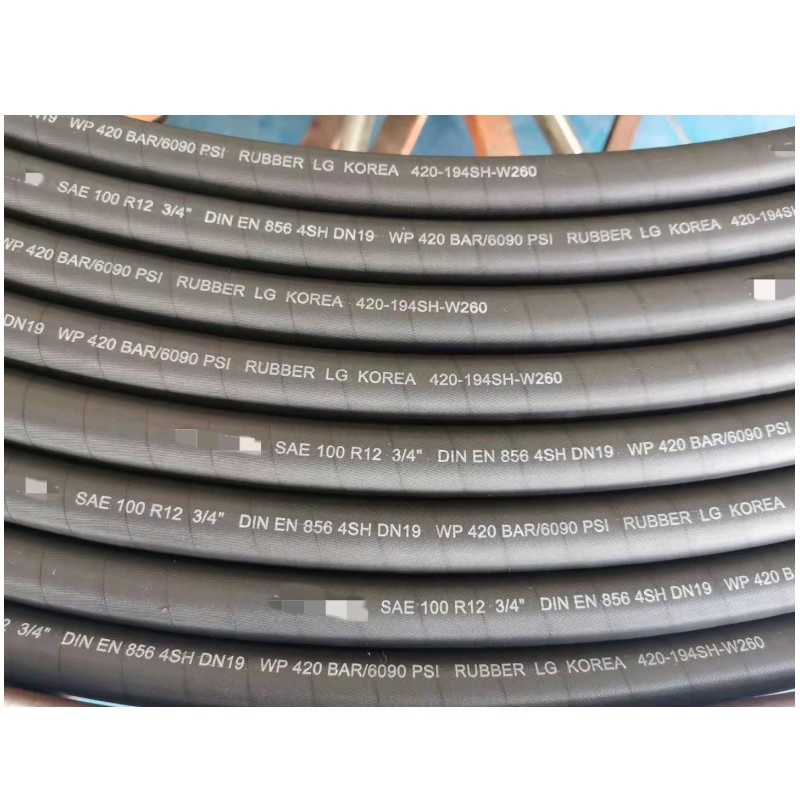Aug . 20, 2024 17:47 Back to list
CE Certification for Metal Hose Products Ensuring Quality and Safety Standards Compliance
Understanding CE Certification for Metal Hose Products
CE certification is a mark of quality and safety that signifies compliance with European health, safety, and environmental protection standards. For manufacturers and distributors of metal hose products, obtaining CE certification is crucial not only for market access in the European Union (EU) but also for instilling confidence in buyers about the reliability and safety of their products.
The Importance of Metal Hoses
Metal hoses are essential components in various industries, including aerospace, automotive, chemical processing, and food production. They facilitate the transfer of fluids and gases under varying pressures and temperatures. Due to the critical nature of these applications, the quality, durability, and safety of metal hose products cannot be compromised. This is where CE certification plays a significant role.
What is CE Certification?
CE marking indicates that a product conforms to European legislation and has been assessed to meet stringent health, safety, and environmental requirements. It is a self-declaration by the manufacturer, indicating that their product meets all relevant EU directives. For metal hose products, this might include directives related to pressure equipment, machinery, or specific applications depending on their use.
The CE Certification Process
1. Identify Relevant Directives The first step for manufacturers is to identify which EU directives are applicable to their metal hose products. This could include the Pressure Equipment Directive (PED) or the Machinery Directive (MD).
2. Product Testing and Assessment Once the correct directives are established, manufacturers must conduct rigorous testing and assessment of their hoses. This involves evaluating the product against the standards outlined in the directives, including pressure tests, temperature resistance, and material quality.
ce certification metal hose products

3. Technical Documentation Manufacturers must prepare comprehensive technical documentation that illustrates compliance with the standards. This documentation should include product descriptions, testing results, and the design and manufacturing processes.
4. Quality Management Systems In many cases, manufacturers must establish a quality management system, such as ISO 9001, to ensure consistent compliance with relevant standards. This includes regular audits and evaluations of manufacturing processes.
5. Certification Depending on the product and applicable directives, there may be a need to involve a notified body for independent assessment. Upon successful evaluation, the product can receive CE marking.
Benefits of CE Certification
- Market Access CE marking is a prerequisite for selling products in the EU market. It opens doors not only within Europe but also in other global markets that recognize CE standards. - Increased Credibility CE certification enhances the manufacturer's credibility. Customers and clients are more likely to choose products that are certified, knowing they meet recognized safety standards.
- Risk Mitigation By adhering to stringent regulations, manufacturers reduce the risk of accidents and failures associated with their metal hoses. This can lead to lower liability costs and increased customer satisfaction.
- Improved Product Quality The certification process encourages manufacturers to focus on quality and continuous improvement, ultimately resulting in better products.
Conclusion
In conclusion, CE certification is an essential aspect of marketing metal hose products within Europe and ensures that these critical components meet rigorous safety and quality standards. The process may seem intricate, but the rewards—market access, enhanced credibility, and improved quality—far outweigh the challenges. Manufacturers who prioritize CE certification not only comply with legal requirements but also contribute to the overall safety and efficiency of the industries they serve. As global competition intensifies, businesses must embrace such standards to maintain their competitive edge and ensure the welfare of their customers.
-
Best Four Steel Wire Spiral Hose Hydraulic R12 – Durable High-Pressure Hose Manufacturer
NewsJul.08,2025
-
High-Quality 1/4 Hydraulic Hose – Soft, Flexible & Durable Rubber Hoses for Industrial Use
NewsJul.08,2025
-
1 1 2 Inch Hydraulic Flexible Hose - Durable, Reliable, High-Pressure Solutions
NewsJul.07,2025
-
High-Quality 1 2 Rubber Hose - Durable, Flexible Hydraulic Solutions
NewsJul.07,2025
-
Discover SAE Hydraulic Hose Types - High Quality & Durable Hoses from Leading Factory Supplier
NewsJul.06,2025
-
High Pressure Wire Hydraulic Rubber Hose Supplier Durable & Reliable 1SN Hose Solutions
NewsJul.06,2025
